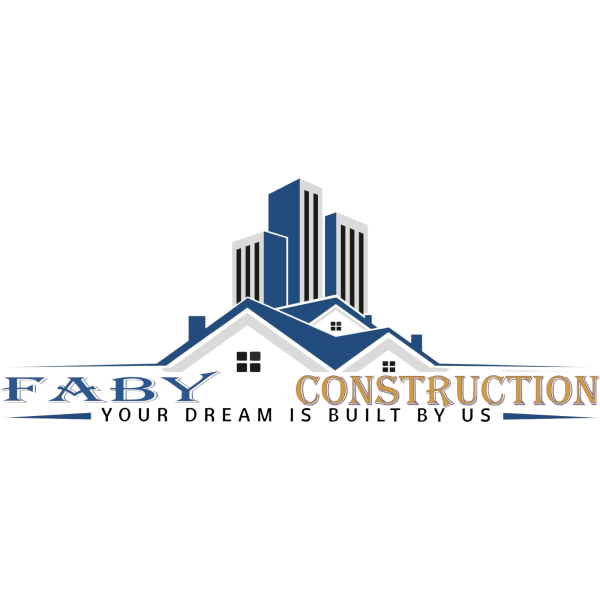Understanding Loft Conversions in Carterton
Loft conversions in Carterton have become increasingly popular as homeowners seek to maximise their living space without the hassle of moving. This transformation not only adds value to your property but also provides a versatile area that can be tailored to your needs. Whether you're considering a new bedroom, office, or playroom, a loft conversion offers endless possibilities. Let's delve into the various aspects of loft conversions, ensuring you have all the information needed to make an informed decision.
Benefits of Loft Conversions
Loft conversions offer a myriad of benefits, making them an attractive option for many homeowners. Firstly, they significantly increase the usable space in your home, allowing for additional rooms without altering the footprint of your property. This is particularly beneficial in Carterton, where space can be at a premium.
Moreover, a well-executed loft conversion can enhance the aesthetic appeal of your home, providing a modern and stylish addition. It also increases the market value of your property, offering a substantial return on investment should you decide to sell in the future.
Another advantage is the potential for increased natural light. By adding windows or skylights, you can create a bright and airy space that feels welcoming and comfortable. This can be particularly appealing during the long winter months when natural light is at a premium.
Types of Loft Conversions
There are several types of loft conversions to consider, each with its own set of advantages and considerations. The most common types include:
- Velux Conversion: This is the simplest and most cost-effective option, involving the installation of Velux windows into the existing roof structure. It requires minimal structural alterations and is ideal for lofts with sufficient headroom.
- Dormer Conversion: A dormer conversion involves extending the existing roof to create additional floor space and headroom. This type of conversion is versatile and can be adapted to suit various property styles.
- Mansard Conversion: This option involves altering the roof structure to create a flat roof with steeply sloping sides. It provides maximum space and is often used in urban areas where planning restrictions are more stringent.
- Hip to Gable Conversion: Suitable for properties with a hipped roof, this conversion involves extending the gable end to create additional space. It is a popular choice for semi-detached and detached houses.
Planning Permission and Building Regulations
Before embarking on a loft conversion in Carterton, it's essential to understand the planning permission and building regulations that may apply. While many loft conversions fall under permitted development rights, meaning they do not require planning permission, there are exceptions.
If your property is in a conservation area or is a listed building, you may need to obtain planning permission. Additionally, if the conversion involves significant alterations to the roof structure, such as a mansard or dormer conversion, planning permission may be required.
Building regulations are another crucial consideration. These regulations ensure that the conversion is structurally sound, energy-efficient, and safe. Key areas covered by building regulations include fire safety, insulation, and structural integrity. It's advisable to consult with a professional architect or builder to ensure compliance with all relevant regulations.
Choosing the Right Contractor
Choosing the right contractor is a critical step in ensuring a successful loft conversion. A reputable contractor will have experience in similar projects and will be able to provide references and examples of previous work.
When selecting a contractor, consider the following factors:
- Experience: Look for a contractor with a proven track record in loft conversions. They should be familiar with the specific challenges and requirements of converting lofts in Carterton.
- Reputation: Check online reviews and ask for recommendations from friends or family. A contractor with a good reputation is more likely to deliver quality work.
- Communication: Choose a contractor who communicates clearly and regularly. They should be willing to discuss your ideas and provide updates throughout the project.
- Cost: Obtain multiple quotes to ensure you're getting a fair price. Be wary of quotes that are significantly lower than others, as this may indicate subpar materials or workmanship.
Design Considerations for Loft Conversions
The design of your loft conversion is a crucial aspect that will determine the functionality and aesthetic appeal of the space. It's important to consider how you intend to use the space and what features are most important to you.
For instance, if you're creating a bedroom, you may want to include built-in storage solutions to maximise space. If the loft will serve as a home office, consider the placement of windows to ensure adequate natural light and ventilation.
Additionally, think about the overall style and decor of the space. A cohesive design that complements the rest of your home will create a seamless transition and enhance the overall appeal of your property.
Maximising Space and Light
One of the primary goals of a loft conversion is to maximise space and light. Here are some tips to achieve this:
- Use Light Colours: Light colours can make a space feel larger and more open. Consider using whites, creams, or pastels for walls and ceilings.
- Install Skylights: Skylights are an excellent way to bring natural light into the loft. They can also provide ventilation and create a connection with the outdoors.
- Opt for Open Plan: An open-plan layout can make the space feel more expansive. Consider removing unnecessary walls or partitions to create a more open and airy environment.
- Utilise Built-In Storage: Built-in storage solutions can help maximise space and keep the area clutter-free. Consider incorporating shelving, cupboards, or drawers into the design.
Cost of Loft Conversions in Carterton
The cost of a loft conversion in Carterton can vary significantly depending on several factors, including the type of conversion, the size of the loft, and the materials used. On average, a basic Velux conversion may cost between £15,000 and £20,000, while a more complex mansard conversion could range from £40,000 to £60,000.
It's important to budget for additional expenses, such as planning permission fees, building regulation costs, and any unforeseen issues that may arise during the project. Obtaining multiple quotes from reputable contractors can help ensure you're getting a fair price.
Financing Your Loft Conversion
Financing a loft conversion can be a significant investment, but there are several options available to help manage the cost. These include:
- Home Improvement Loans: Many banks and financial institutions offer loans specifically for home improvement projects. These loans typically have competitive interest rates and flexible repayment terms.
- Remortgaging: Remortgaging your home can provide access to additional funds by releasing equity. This option may offer lower interest rates compared to personal loans.
- Government Grants: In some cases, government grants may be available for energy-efficient home improvements. Check with your local council to see if you qualify for any grants or incentives.
Common Challenges and Solutions
While loft conversions offer numerous benefits, they can also present certain challenges. Being aware of these potential issues and their solutions can help ensure a smooth and successful project.
One common challenge is limited headroom. If your loft has low ceilings, consider options such as lowering the floor or raising the roof to create additional space. Consulting with a structural engineer can provide valuable insights into the feasibility of these options.
Another challenge is ensuring adequate insulation and ventilation. Proper insulation is essential for maintaining a comfortable temperature and reducing energy costs. Ventilation is equally important to prevent condensation and maintain air quality. Consider installing roof vents or mechanical ventilation systems to address these concerns.
Dealing with Planning Restrictions
In some cases, planning restrictions may limit the scope of your loft conversion. If you encounter planning challenges, consider the following solutions:
- Consult with a Planning Consultant: A planning consultant can provide expert advice on navigating planning regulations and identifying potential solutions.
- Explore Alternative Designs: If your initial design is not feasible, consider alternative options that comply with planning restrictions. This may involve adjusting the size or layout of the conversion.
- Engage with the Local Council: Engaging with the local council early in the process can help identify potential issues and facilitate a smoother approval process.
Environmental Considerations
As environmental awareness continues to grow, many homeowners are seeking ways to make their loft conversions more sustainable. Incorporating eco-friendly features can reduce your carbon footprint and contribute to a healthier living environment.
Consider using sustainable materials, such as reclaimed wood or recycled insulation, in your conversion. Additionally, energy-efficient windows and lighting can help reduce energy consumption and lower utility bills.
Incorporating Renewable Energy
Incorporating renewable energy sources into your loft conversion can further enhance its sustainability. Options to consider include:
- Solar Panels: Installing solar panels on the roof can generate clean energy and reduce reliance on fossil fuels.
- Heat Pumps: Heat pumps provide an energy-efficient way to heat and cool your home, reducing energy consumption and emissions.
- Rainwater Harvesting: Collecting rainwater for use in toilets or irrigation can conserve water and reduce utility costs.
Legal and Safety Considerations
Ensuring the legal and safety aspects of your loft conversion are addressed is crucial to avoid potential issues down the line. This includes obtaining the necessary approvals and ensuring compliance with building regulations.
Fire safety is a key consideration in loft conversions. Ensure that the conversion includes appropriate fire exits, smoke alarms, and fire-resistant materials. Consulting with a fire safety expert can provide valuable guidance on meeting these requirements.
Party Wall Agreements
If your loft conversion involves work on a shared wall with a neighbouring property, a party wall agreement may be required. This legal agreement outlines the rights and responsibilities of both parties and helps prevent disputes.
It's advisable to engage a party wall surveyor to facilitate the agreement process and ensure compliance with the Party Wall Act. This can help avoid potential conflicts and ensure a smooth project.
Frequently Asked Questions
- Do I need planning permission for a loft conversion in Carterton? In many cases, loft conversions fall under permitted development rights and do not require planning permission. However, exceptions apply, so it's essential to check with your local council.
- How long does a loft conversion take? The duration of a loft conversion can vary depending on the complexity of the project. On average, a basic conversion may take 4-6 weeks, while more complex projects could take 8-12 weeks.
- Can I live in my home during the loft conversion? In most cases, you can continue to live in your home during the conversion. However, there may be some disruption, so it's important to plan accordingly.
- Will a loft conversion add value to my home? Yes, a loft conversion can significantly increase the value of your home, often providing a return on investment of 20% or more.
- What is the minimum headroom required for a loft conversion? Building regulations typically require a minimum headroom of 2.2 metres for a loft conversion. However, this can vary depending on the specific circumstances of your property.
- Can I convert my loft if I have a trussed roof? Yes, it is possible to convert a loft with a trussed roof, but it may require additional structural work. Consulting with a structural engineer can provide insights into the feasibility and cost of the conversion.
In conclusion, loft conversions in Carterton offer a fantastic opportunity to enhance your living space and add value to your home. By understanding the various aspects of the process, from planning and design to legal considerations, you can ensure a successful and rewarding project. With careful planning and the right team, your dream loft conversion can become a reality.











